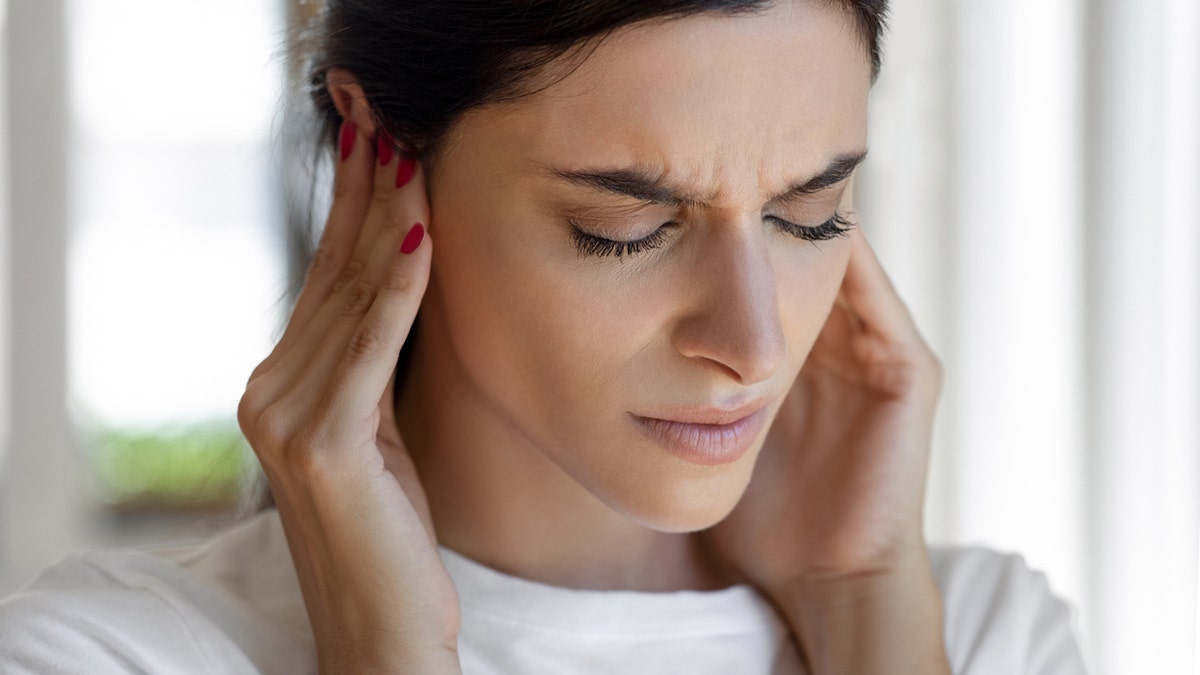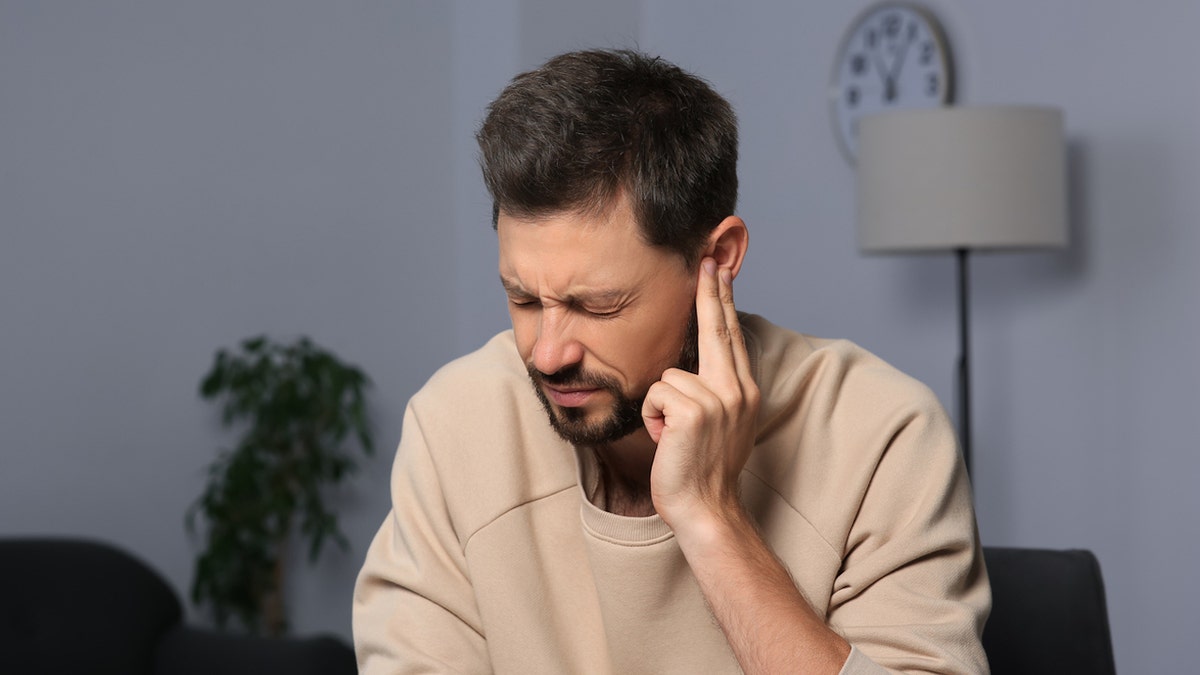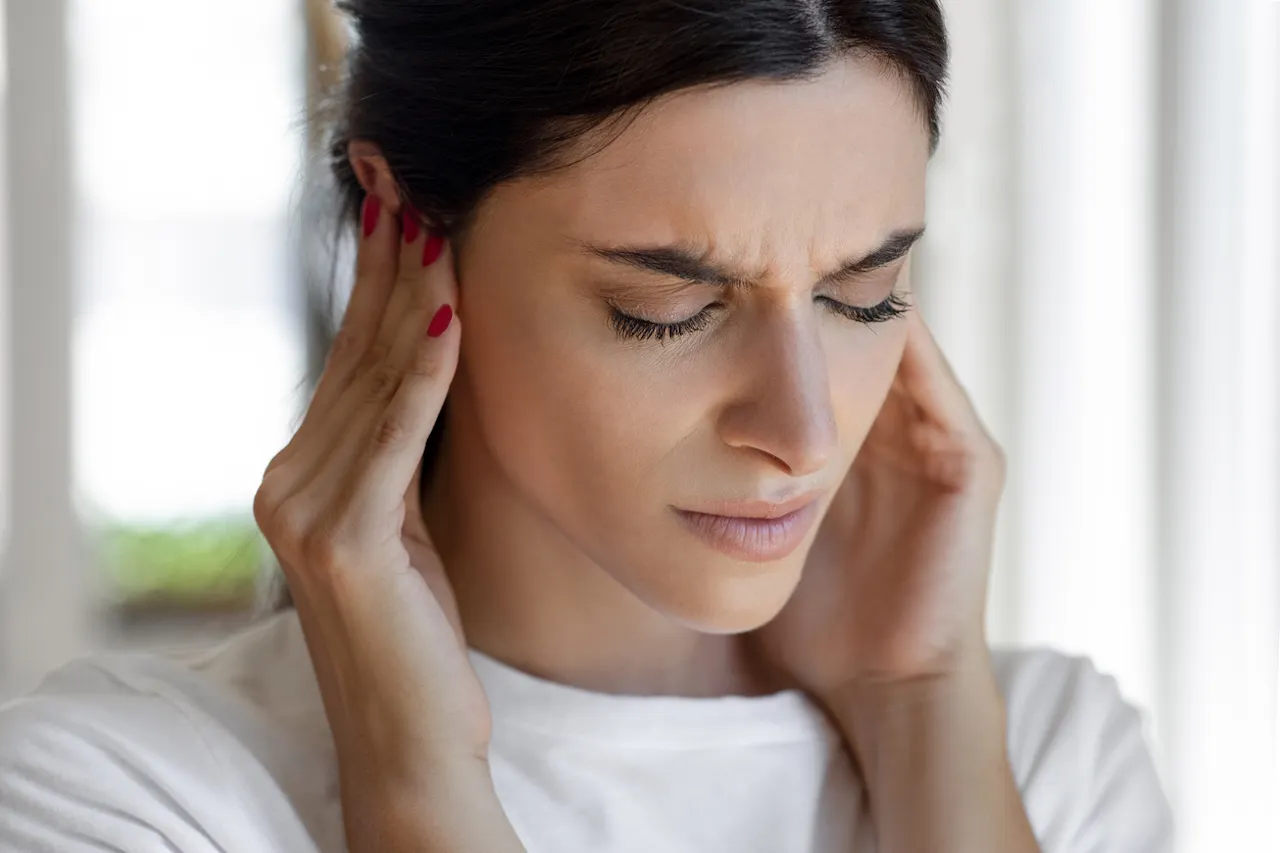You’ve likely felt your heart beating in your chest after strenuous activity — or have taken your pulse by placing your fingers on your wrist or neck.
A less common — and sometimes startling — sensation is to actually hear the “whooshing” sound of your heartbeat in your ears.
Fox News Digital reached out to two doctors to learn more about what causes this and whether it’s a cause for concern.
ANGER CAN INCREASE HEART ATTACK RISK, STUDY FINDS: ‘CHRONIC INSULT TO ARTERIES’
Hearing your heartbeat in your ears — also known by the Latin name “pulsatile tinnitus” — isn’t always a sign of a medical problem, but it could warrant a discussion with your physician, according to Frederick James Meine, M.D., an interventional cardiologist with Novant Health in Wilmington, North Carolina.

Hearing your heartbeat in your ears — also known by the Latin name “pulsatile tinnitus” — isn’t always a sign of a medical problem. Still, it could warrant a discussion with your physician. (iStock)
“Many people hear it at one time or another, especially when they are lying down on their side,” Meine told Fox News Digital.
What causes the condition?
Hearing your heartbeat can be related to ear issues such as wax buildup, fluid in the ear or other hearing issues, Meine said.
The most common cause is Eustachian tube dysfunction. This is usually due to allergies, according to Jesus Lizarzaburu, M.D., a family physician with TPMG Grafton Family Medicine in Yorktown, Virginia.
HALF OF AMERICANS NOT EQUIPPED TO PROVIDE LIFE-SAVING TREATMENT IN A CRISIS, POLL FINDS
“The Eustachian tube connects the middle ear to the back of your nose, and when it is blocked or doesn’t open and close properly, it can cause the sound of your heartbeat to be heard in your ears,” he told Fox News Digital.
Another culprit could be earwax buildup, which can also cause a seal in the ear canal that makes the heartbeat easier to hear, Lizarzaburu added.
Elevated blood pressure is another cause, though less common.

Hearing your heartbeat can be related to ear issues such as wax buildup, fluid in the ear or other hearing issues, a doctor said. (iStock)
On rare occasions, medications like non-steroidal anti-inflammatories (NSAIDs), antibiotics, diuretics, chemotherapy medications, aspirin, certain antidepressants, quinine and antivirals can cause tinnitus, a ringing in the ears that is in rhythm with the heart rate, noted Lizarzaburu.
“Extremely rare causes would be an aneurysm (a bulge in a blood vessel in the brain) or a vascular tumor, which is made up of a collection of blood vessels,” he added.
When to seek medical attention
A thorough physical exam, including a blood pressure check and an examination of the carotid arteries in the neck, is an important part of gauging overall cardiovascular health, Meine advised.
CLICK HERE TO SIGN UP FOR OUR HEALTH NEWSLETTER
“In addition, ruling out anemia or hyperthyroidism, both of which could cause increased blood flow and possibly contribute to pulsatile tinnitus, could be evaluated with simple lab tests,” he said.
If someone experiences the condition intermittently, it is likely less worrisome, the doctor noted.

A thorough physical exam, including a blood pressure check and an examination of the carotid arteries in the neck, is an important part of gauging overall cardiovascular health, a doctor advised. (iStock)
“However, if it is persistent or new-onset, we would perform a complete history and physical exam,” he said.
From a cardiovascular perspective, if someone is experiencing pulsatile tinnitus or hearing their heartbeat in their own ears, Meine said it’s important to rule out any potential cardiovascular issues.
CLICK HERE TO GET THE FOX NEWS APP
The doctor would also make sure the patient does not have a blockage or narrowing of the neck arteries, which could contribute to louder heart sounds in the ears and head, he said.
“I do want to stress that most of us occasionally hear our heartbeats in our heads and ears, especially when our heart rate is increased during exercise,” Meine said.
For more Health articles, visit www.foxnews.com/health.

